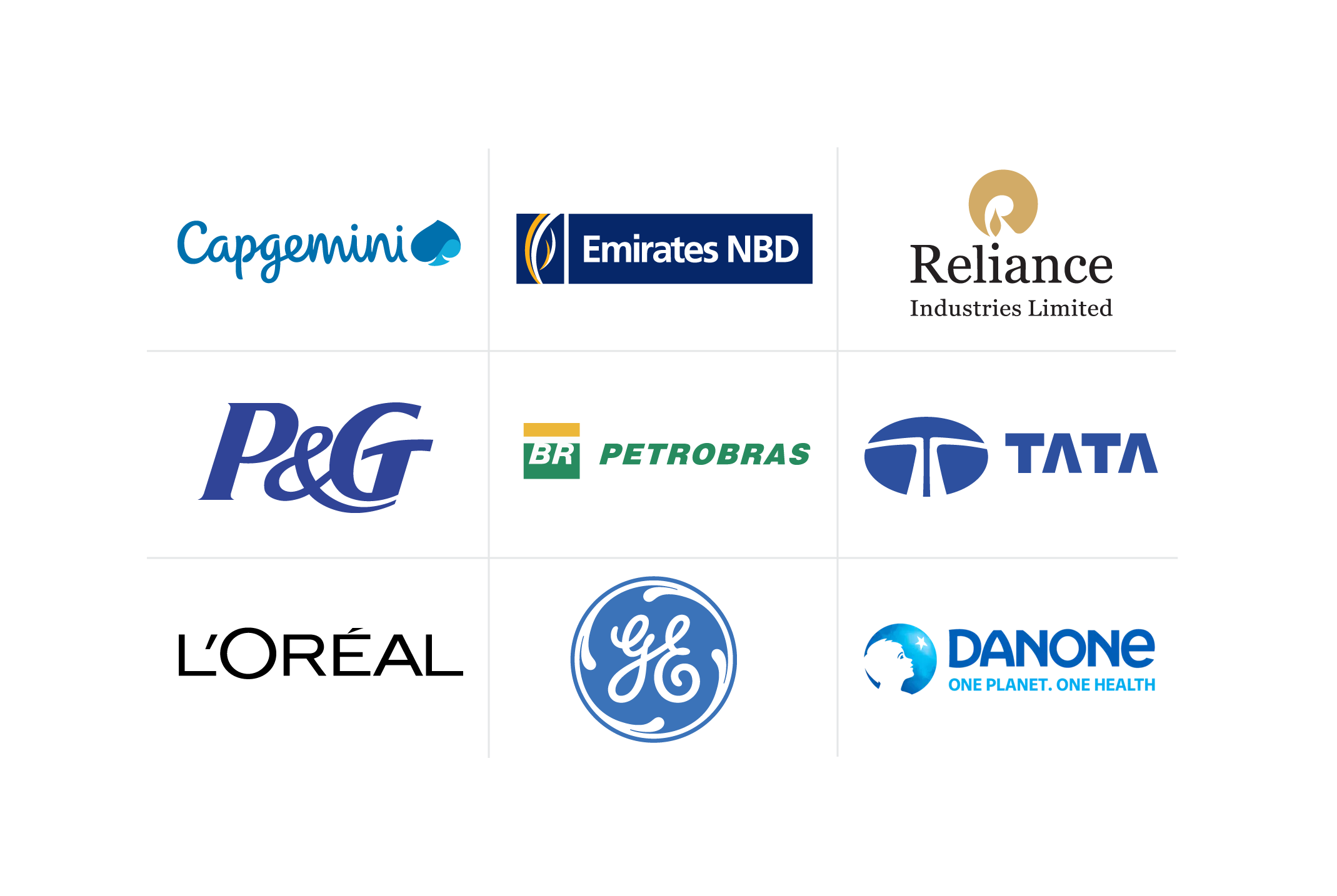Management vs. Leadership: What’s the Difference?
Discover the similarities and differences between managers and leaders and learn why both contribute to a company or organization's success.
![[Featured Image] A group of business students discuss management vs. leadership and the impact of identifying the differences.](https://d3njjcbhbojbot.cloudfront.net/api/utilities/v1/imageproxy/https://images.ctfassets.net/2pudprfttvy6/2SLkLaiC53s5KJzdBKRpJR/6a64880b097e3b0c02d8fc07a483fac5/GettyImages-1463557059.jpg?w=1500&h=680&q=60&fit=fill&f=faces&fm=jpg&fl=progressive&auto=format%2Ccompress&dpr=1&w=1000)
If you're in a supervisory position or you think you'd like to be in one, it's important to distinguish between the terms "management" and "leadership." Many people use these terms interchangeably, but they have fundamental differences. For instance, managers and leaders have different personalities, behaviors, and skill sets, but organizations rely on both to succeed.
Clearly defining both terms can help you understand more about management versus leadership. Explore the skills managers need to be successful, different leadership styles, and the similarities and differences between management and leadership. Get advice about being a leader regardless of your position with a company. Then, learn about a course to improve your leadership skills.
What is management?
Management involves ensuring that a business runs smoothly on a day-to-day basis to meet objectives and goals specified by a company. Some tasks involved in management include control, coordination, direction, organization, and planning.
Read more: 8 Management Styles in Business: Choosing the Best Fit
Essential management skills
To be successful as a manager, you'll need a specific skill set, including the ability to communicate well and coordinate with others. While some management skills may come naturally, others may require some work. The following eight skills provide a good foundation for managers in many fields.
1. Communication
Clear and direct communication with your managers and colleagues ensures smooth business operations. You'll need to explain tasks effectively, voice concerns respectfully, and initiate and keep discussions productive.
2. Conflict resolution
Conflicts naturally occur when working with teams of people. By resolving conflicts quickly, you can save a company time and money. The objective of conflict resolution involves finding a solution that works for all parties, so it is essential to keep fairness and respect in mind along the way.
3. Decision-making
Good management requires making decisions using the information available. You can always alter your direction if you get new information. Still, the ability to make decisions is critical to keeping progress moving forward and to helping resolve problems and challenges as they arise.
4. Delegation
Managers who try to do everything themselves often experience too much stress and decreased productivity. Delegating can help reduce stress, empower employees, and foster personal and professional growth. To be a good delegator, you must get to know your team and assign duties based on individual strengths to ensure success.
5. Flexibility
In any line of work, things don't always go as planned, so it helps to be flexible as a manager. Some characteristics of flexible managers include:
Open-mindedness
Dynamic thinking (anticipating potential scenarios and trends)
Ability to adapt to unforeseen circumstances
Sensitivity to others’ thoughts and feelings
6. Goal setting
Setting clear goals helps your team understand what they need to do and keeps them on task. Mapping out and meeting milestones along the way can help motivate your team to reach company goals.
7. Organization
Good organizational skills can benefit you as a manager in various ways. Staying organized can improve your:
Ability to meet deadlines and goals
Efficiency
Focus
Productivity
8. Problem-solving
Companies appreciate managers who can evaluate a problem and find a solution in a reasonable period. Sharpen your problem-solving skills by following these tips:
Frame the problem and gather information.
Ask what, where, when, why, and how questions about the problem
Recognize any biases you may have regarding the problem
Think the problem through before making a decision
Remain receptive to new ideas and ways to solve the problem
Keep emotions out of the process
Read more: 10 Essential Managerial Skills and How to Develop Them
What is leadership?
Leadership refers to the ability to empower, influence, or motivate others. Words often used to describe leaders include courageous, innovative, inspiring, passionate, purposeful, resilient, and transformative. Good leaders celebrate successes and turn setbacks into opportunities. They have a vision, aren't afraid to take risks, and confidently move through all aspects of life.
Leadership styles
People who hold positions of authority in the workplace exhibit different leadership styles (sometimes more than one). Four common styles of leadership include:
Authoritative leadership
This type of leader provides direction, guidance, and motivation to encourage workplace success. They enjoy mentoring staff members and getting to know them personally and like being hands-on with tasks and projects.
Participative leadership
These types of leaders believe in democracy in the workplace. In other words, they encourage subordinates to participate in decision-making and problem-solving and have an open-door policy regarding communication.
Servant leadership
These types of leaders always consider the needs of subordinates ahead of their own. They promote trust in the workplace through employee empowerment and encourage good relationships among everyone.
Transformational leadership
These leaders look toward the future and inspire others to do the same. They focus on goal achievement and have a knack for getting the most from their employees by helping them develop their abilities and strengths.
Read more: Leadership Styles: What They Are and Why They Matter
Management vs. leadership: differences between the two
Management has to do with a specific role in a company, and leadership refers to abilities that can evolve through greater self-awareness, interaction with others, and higher emotional intelligence. When comparing the two, it’s helpful to think of it like this: leaders create goals and mobilize employees to meet them. Managers make sure employees complete the work. While employees choose to follow leaders, they're required to follow managers. Managers deal with the daily tasks of successfully operating a business, and leaders support teams while looking toward the future.
Similarities between management and leadership
Management and leadership share one fundamental similarity: companies need both to achieve end goals. So, managers with good leadership skills have high value. If, as a manager, you can motivate employees to work, make sure they complete their work, and celebrate achievements, chances are you'll have employees who want to follow you. Both management and leadership rely on skills such as confidence, self-awareness, empathy, and passion.
How to be a leader in any position
You can be a leader in any job or role, not just those that place you in a position of authority. No matter what position you hold, you can enhance your leadership skills by taking the following actions:
Develop good relationships with superiors and coworkers
Include others in activities, decisions, and discussions
Demonstrate positivity and enthusiasm
Collaborate well with coworkers
Celebrate the successes of others
Improve your expertise
Find ways to streamline tedious work processes
Next steps
Knowing more about the differences between management and leadership can help make companies and individual managers and leaders more effective. Whether you envision your career looking forward to the future to help shape organizational direction or working directly with employees to ensure the organization completes its daily activities, you’ll find roles within leadership and management to suit you.
First, consider taking a leadership course to build your leadership skills or those of your employees. Connected Leadership, offered by Yale University on Coursera, provides tools for exploring individual purpose, building emotional intelligence, and working well with teams. You can also learn to use systems thinking to improve workplace performance and solve problems. Another option, the Strategic Leadership and Management Specialization from the University of Illinois at Urbana-Champaign, can also help you develop leadership and management skills.
This content has been made available for informational purposes only. Learners are advised to conduct additional research to ensure that courses and other credentials pursued meet their personal, professional, and financial goals.


